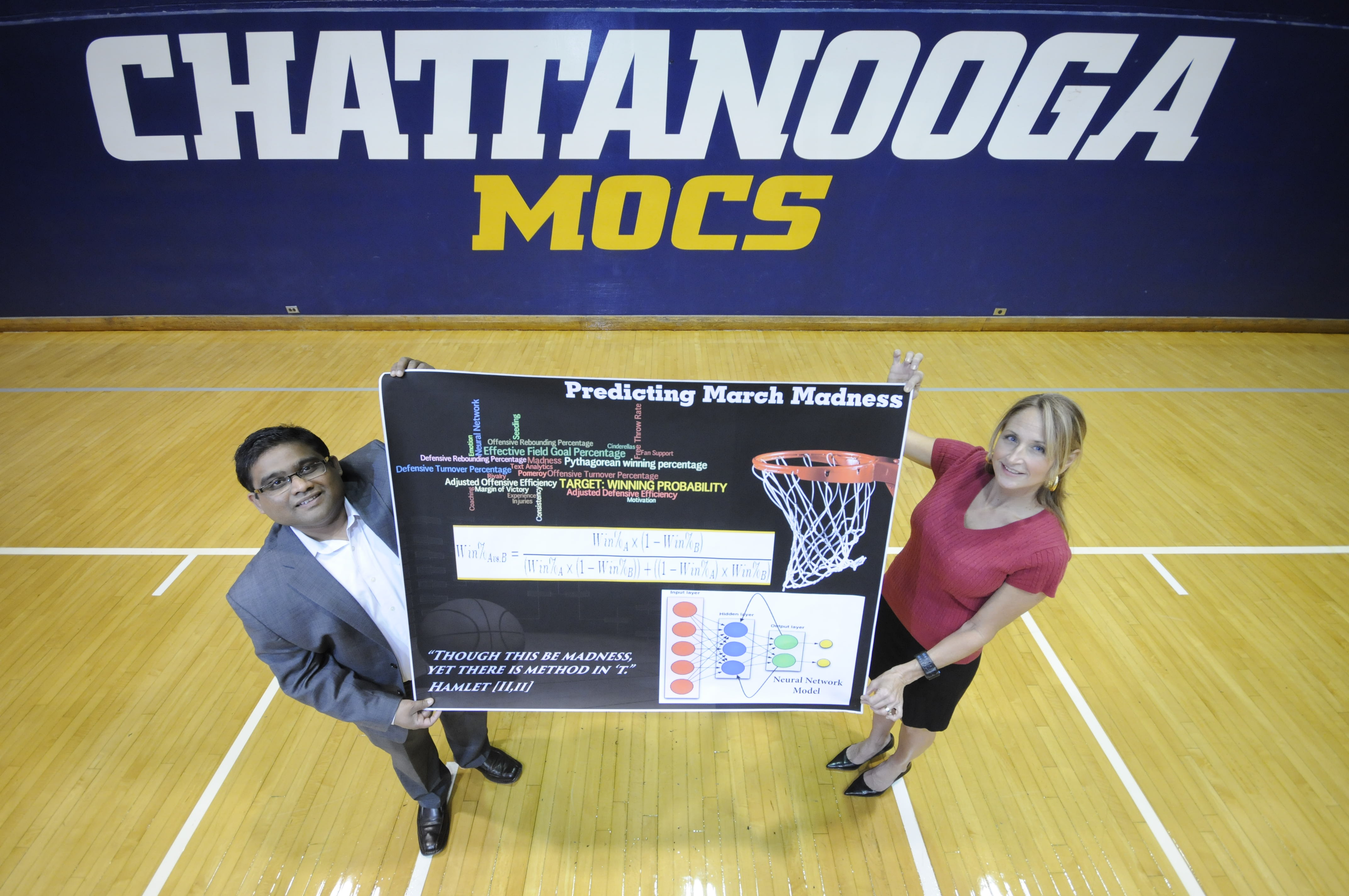Read moreRinggold electrician's ESPN bracket ranks ninth out of millions
Polynomial regression, neural network, step-wise regression, Pythagorean-expected winning percentage - all complex math and data analysis tools that can be used to examine nearly every measurable part of a basketball game.
Nearly.
An avid basketball fan and Vanderbilt University alumna, Robin Moldenhauer decided to apply her math background and recent training in the University of Tennessee at Chattanooga's new Business Analytics Program to the NCAA Men's Division I Basketball Championship.
After weeks of gathering data, scouring websites and selecting formulas, Moldenhauer entered her picks into the Quicken Loans and Warren Buffett Billion Dollar Bracket contest.
The contest promised to award $1 billion to the person who could correctly predict the outcomes of all match-ups in the tournament. By the second day of the tournament not one of the 11 million entries remained.
It's always those pesky underdogs who trash otherwise beautiful brackets. In this year's March Madness, at least eight lower-seeded team victories have so far derailed many fan predictions.
Moldenhauer had Florida playing Michigan State and Arizona playing Louisville in the Final Four. That was the same result President Barack Obama predicted.
They both were right ... about Florida.
"Basically right now my whole bracket's been blown out of the water," Moldenhauer said. "Statistics can only predict so much."
Statistics are not new to sports. As long as someone has kept track of a player's or team's numbers there have been fans and critics to debate the merits of those figures and what those digits can predict.
Chattanooga Lookouts President and General Manager Rich Mozingo said the wave of statistical analysis since the relative "Moneyball" success of the 2002 Oakland Athletics baseball team has changed how organizations evaluate players and build teams.
"Moneyball," a 2003 book by Michael Lewis, looked at how A's General Manager Billy Beane used data analysis to decide which players to draft for the team. The team had the third-lowest cumulative team salary in the league at the time.
While the numbers are helpful, Mozingo agreed with Moldenhauer's observation that not everything is measurable.
"They're picking guys based on numbers only," Mozingo said. "So much is being put on what are the statistics."
He sees the use of data analysis as helpful in some ways but worrying in others.
"There's something about going out and watching a guy play baseball," Mozingo said, speaking about the intangibles like attitude and drive that might not translate to statistics. "I think we're losing some of that."
UTC Professor Ashish Gupta teaches classes in the data analysis program and said the beauty of using such massive amounts of information is that each year the formula can be perfected with new information and changes to the model.
"We need to have some sort of real-time analytics going on, pull from multiple streams," he said. "The model becomes intelligent for producing predictions next year."
Thought she'll finish the analytics program this year, Moldenhauer said she plans to update the data again for next year's bracket and see if she can improve her predictions.
"It's been a great lesson in what's predictable and what's not," Moldenhauer said.
Building a good prediction model, to a large degree, depends a lot on what has happened in the past, she said.
Her final analysis will come after the championship game next week when she can look back on all of the numbers through the tournament and see if any variables stick out that might have foreshadowed a team's success.
Moldenhaeur doesn't claim her model didn't have flaws. But she has one complaint.
"I think the tournament selection committee has been horrible at selecting seedings," she said. "You always expect upsets but not this many. I don't know where they're getting their numbers."
Contact staff writer Todd South at tsouth@timesfreepress.com or 423-757-6347. Follow him on Twitter @tsouthCTFP.

